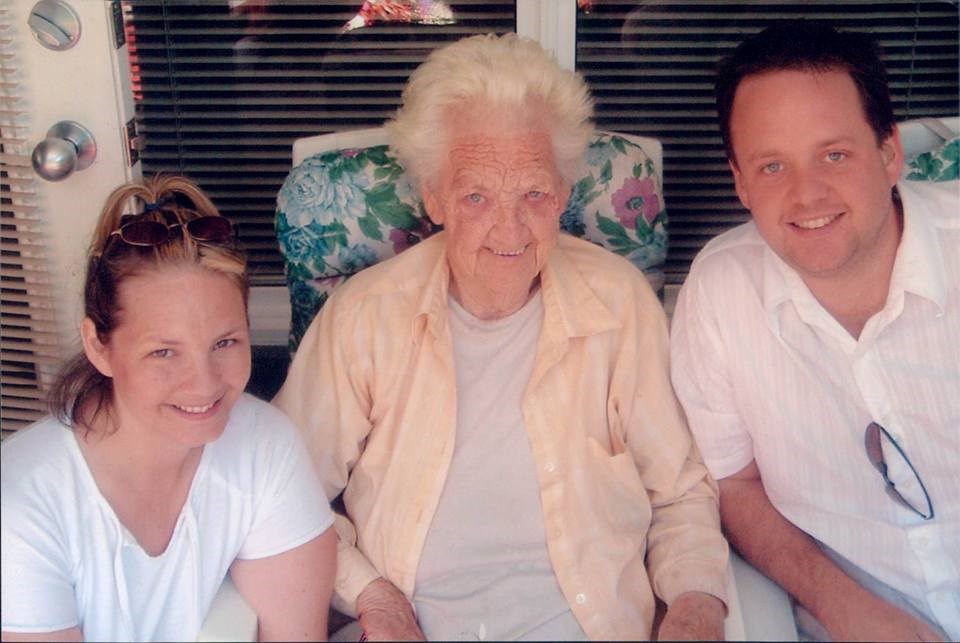My Nana Alyce died at 100 years old in 2019. She was a character. A war bride brought over from England, she sometimes worked three jobs to keep the family afloat. She loved being a waitress and had regulars who considered her family, but often noted as a teen who excelled at school, her parents’ resources would not have been “wasted” on a girl going to university.
She was really smart and very political, always up-to-date on current events, watching the news while slaying the latest newspaper crossword.
To us grandkids, she was doting. My favourite memories of her include walking to the Safeway to buy Pillsbury Refrigerated Cookie Dough. She also let me use her waitress pads for pretend and every summer I spent with her she bought me a goldfish for a bowl on the dresser.
When I once dropped the baggie with the fish in it on the sidewalk, sending poor Goldy flopping toward its death, she took my hand, we got back on the bus and she bought me another.
Her smarts were what got her through life, until they didn’t.
She developed dementia in the years before she died.
She was in Burnaby so I didn’t visit regularly, and increasingly, when I did, I upset her. I look a lot like my mom, and so she would get confused and think I was her daughter, but part of her also knew something was off. She would ask where my husband was but would mean my dad. She would start talking about houses they lived in when my mom was a child. It came to the point that she would turn her face into her caregiver Neda’s shoulder and whisper that she wanted “that woman” to go away.
It was hard to see someone so resourceful, so brilliant so “with it” not know who I was, but I can’t imagine how scary it was for her — for anyone who lives with this condition.
And this was before the pandemic.
Like most things, the pandemic must make living with the disease — and its isolation — much harder both for the sufferer and their families, especially as the winter holidays approach.
The . offers free webinars that are meant to help.
“The holidays can present difficulties for people living with dementia for a multitude of reasons,” Carly Gronlund, the Alzheimer Society of B.C.’s provincial co-ordinator, said in a news release. “Large groups of people, different activities happening at the same time, background noise, unfamiliar places and visual stimulus like flickering candles — these factors can all easily lead to sensory overload for a person living with dementia.”
The first of a new ‘Lived experience’ webinar series is set for Wednesday, Nov. 25 at 2 p.m. Two people living with dementia will share the impact of COVID-19 on their preparations for this holiday season.
“It’s important to understand what a person may find challenging, so that we can adapt accordingly. Even small changes can make a big difference and ensure everyone has the best holiday experience possible,” Gronlund said.
To register, visit




